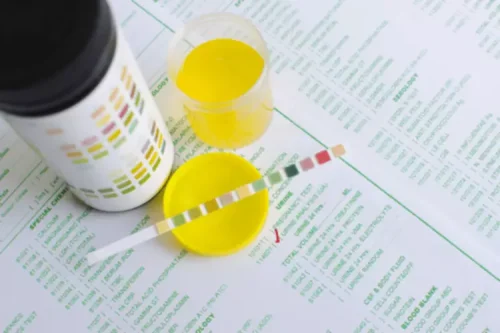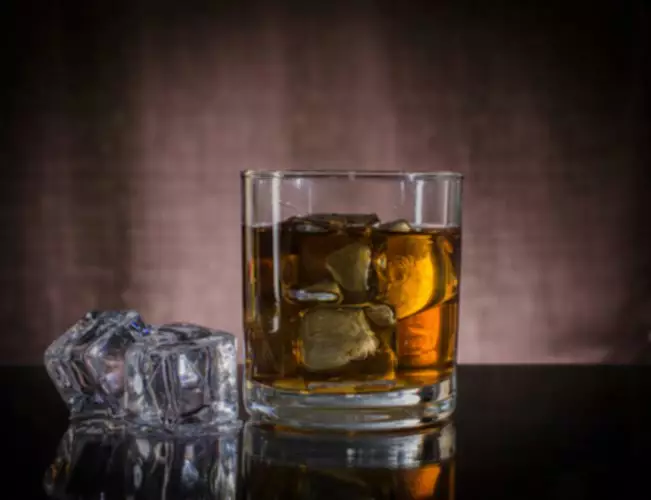
In time (i.e., probably after several years), however, the pancreas cannot keep up with the increased demand for insulin; although insulin production still may be higher than in nondiabetic people, it is no longer sufficient to overcome insulin resistance. Ultimately, insulin secretion declines even further, to levels below those seen in nondiabetics (although generally still higher than those seen in type 1 diabetics). At that point, when a deficit in insulin diabetes and alcohol secretion is combined with a state of insulin resistance, the person develops type 2 diabetes. Thus, whereas type 1 diabetes is characterized by a complete lack of insulin production, type 2 is characterized by reduced insulin production plus insulin resistance. The reasons underlying defective insulin secretion and insulin resistance, which are still under investigation, are complex and beyond the scope of this article (for a review, see DeFronzo 1997).
Who Should Not Drink Alcohol?
In most patients, the disease develops before age 40, primarily during childhood or adolescence. In those patients, the immune system attacks certain cells of the pancreas, called beta cells. (For more information on the structure and function of the pancreas, see textbox, p. 213.) Beta cells produce insulin, one of the two major hormones involved in regulating the body’s blood sugar levels and other metabolic functions.

Blood sugar levels
This happens when the body doesn’t produce enough insulin or does not respond to insulin as it should. That sort of double impact can cause blood sugar levels to drop to dangerously low levels, a condition known as hypoglycemia. Most diabetes medications work to lower your blood sugar (glucose) levels — and they’re particularly good at the job. Alcohol does the same thing, especially when consumed in larger quantities. When it comes to alcohol and diabetes, two related factors come into play — how diabetes medications and alcohol coexist in your system and the effect that drinking has on your liver.
- A person’s overall health plays a significant role in how their body responds to alcohol.
- Whether you have type 1 or type 2 diabetes, it’s important to count your carbs and monitor your blood sugar while drinking.
- Isotope dilution methodology has provided a more thorough understanding of the whole-body glucose carbon flux in response to alcohol.
- A reduced fat oxidative capacity and metabolic inflexibility are important components of muscle insulin resistance [29].
- Sex-specific self-reported alcohol consumption was selected as the exposure of interest.
Does alcohol affect blood sugar levels in diabetes?
As a result, your blood sugar level can drop quickly, putting you at risk for low blood sugar (hypoglycemia). If you take insulin or certain types of diabetes medicine, it can cause seriously low blood sugar. Drinking without eating food at the same time also greatly increases this risk.
Weight Loss Pills: Do They Work?
All alcohol contains about 7 calories per gram, which is more than carbohydrates (4 calories per gram) and only slightly less than fat (9 calories per gram). With your support, the American Diabetes Association® can continue our lifesaving work to make breakthroughs in research and provide https://ecosoberhouse.com/ people with the resources they need to fight diabetes. Most people benefit from consuming a snack or meal that contains some complex carbohydrates, protein, and fat. For example, if you have a glass of alcohol with dinner, choose roasted chicken, baked sweet potato, and sautéed spinach.
- If you have questions about drug interactions that may affect you, talk with your doctor or pharmacist.
- And if you have type 2 diabetes, drinking alcohol may have some benefits—such as lowering glucose levels in the blood—and some real risks, like driving glucose levels down too low.
- The funders had no role in study design, data collection or analysis, decision to publish, or preparation of the manuscript.
- Among all types of wine, red wine is linked with the most health benefits — both for people with diabetes and for the general population — due to its high antioxidant content (17, 18, 19).
- In human volunteers, acute alcohol decreased the glucose arterial-jugular vein difference suggesting a reduction in total brain glucose uptake [76].
Diabetes, Alcohol, and Social Drinking
Despite the high prevalence of impotence in male diabetics and the fact that many of these men consume alcohol, few studies have evaluated the relationship between alcohol intake and impotence in diabetics. In one study of 275 originally potent diabetic men, heavy drinkers were significantly more likely to develop impotence during the 5-year study period than were moderate drinkers (McCulloch et al. 1984). Based on assumptions regarding the alcohol content of the beverages mentioned in the study, “heavy” drinkers were defined as those who ingested 29 grams of alcohol, or approximately two to three standard drinks, per day. Diabetes and alcohol consumption are the two most common underlying causes of peripheral neuropathy.
Alcohol consumption guidelines
Drinking alcohol when you take glucose-lowering medications (insulin) or certain oral medications can increase the risk of low blood sugar. Green tea can lower your blood sugar, and Actos works by lowering your blood sugar levels. Consuming green tea or taking green tea supplements can raise your risk for hypoglycemia. Depending on the severity of your diabetes and other related health considerations, it may be a good idea to quit or limit your use of alcohol, as alcohol has a big effect on your blood sugar levels. If you can’t face food or you’ve been sick, drink as many fluids as you can, including some sugary (non-diet) drinks if your blood sugar levels are low. Consequently, BDNF have an important physiological function in alcohol metabolism, as well as roles in glucose metabolism and insulin resistance.

That said, when it comes to alcohol, people with blood sugar problems should always remain cautious. Some medications are not suitable for use alongside alcohol consumption. People with diabetes should be sure to pay attention to any potential warnings.

Diabetes Medications
These findings are divergent to that observed in other catabolic conditions where glucose uptake is enhanced in macrophage-rich tissues [75]. People with diabetes should be particularly cautious when it comes to drinking alcohol because alcohol can make some of the complications of diabetes worse. First of all, alcohol impacts the liver in doing its job of regulating blood sugar. Alcohol can also interact with some medications that are prescribed to people with diabetes.
